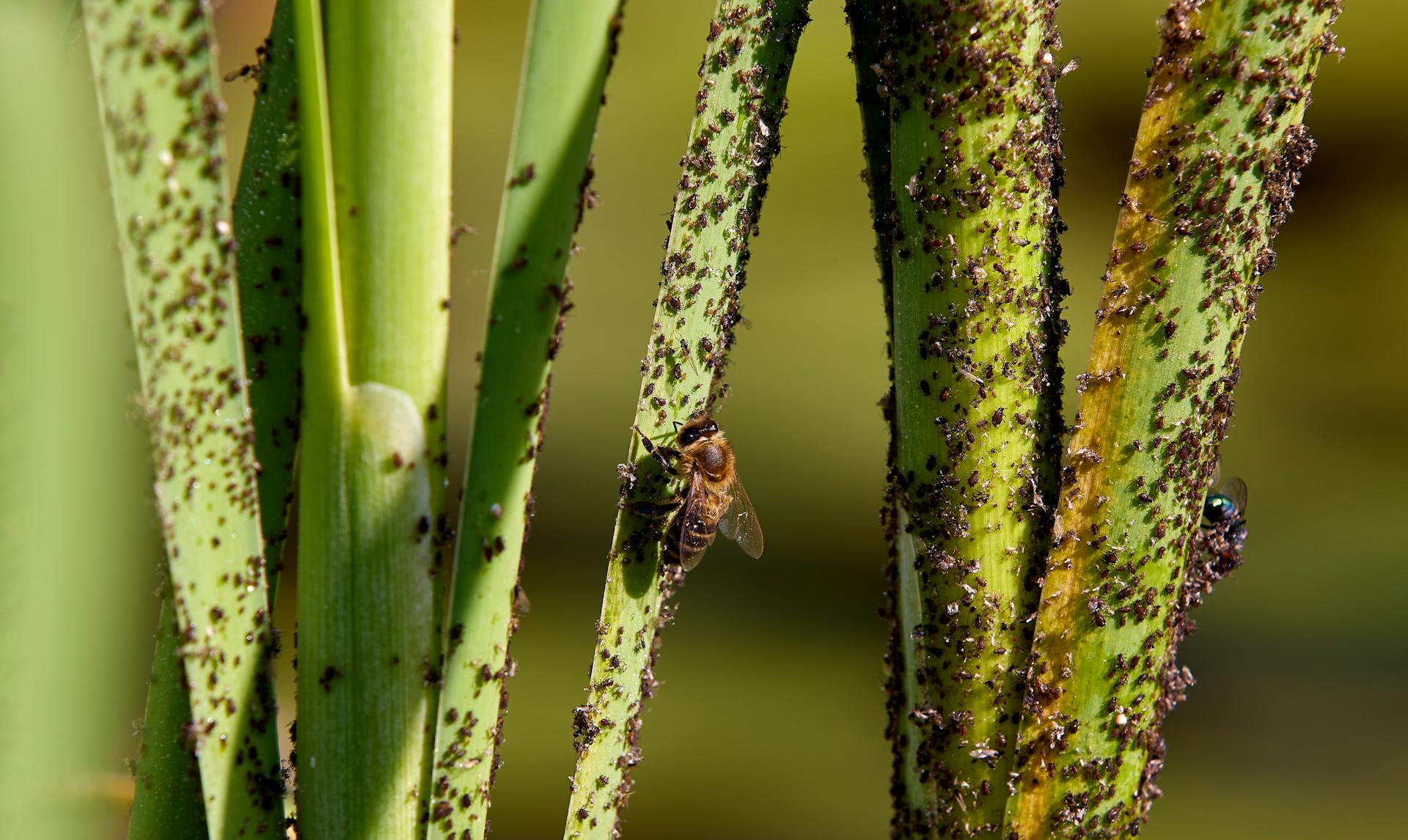
Liver parasites in dogs can be a serious concern for pet owners.
Dogs can become infected with liver parasites through contact with contaminated feces, contaminated food and water, or by ingesting infected insects.
Some of the most common liver parasites in dogs include Ancylostoma, Capillaria, and Dipylidium.
The symptoms of liver parasites in dogs can vary depending on the type of parasite and the severity of the infection, but may include weight loss, vomiting, diarrhea, and lethargy.
Causes of Heterobilharzia
Heterobilharzia americana is a liver and intestinal parasite found in dogs.
It's not easily diagnosed because the eggs are shed intermittently in the fecal matter, and a standard fecal test may come back clean.
The eggs of H. americana don't float in a standard fecal test.
Direct fecal saline smears can help to definitively diagnose H. americana.
Ultrasound and abdominal x-rays may show changes in organs or the intestinal walls specific to an H. americana infection.
On a similar theme: Gi Parasites in Dogs
The ELISA test and the polymerase chain reaction assay can confirm the presence of H. americana.
A history of time spent in mudflats or a rescue dog from Louisiana or Texas may help your veterinarian come to an accurate conclusion.
H. americana is found throughout the Gulf Coast region and other coastal southeastern states.
Its range is currently expanding, with cases being noted in Oklahoma, Kansas, and Texas in the past decade.
It uses aquatic lymnaeid snails as its intermediate hosts and typically raccoons as its definitive hosts.
Dogs, nutria, and bobcats can also act as final hosts.
The motile stage that emerges from the snail into the water penetrates the skin and vasculature of the dog, making its way through the lungs and liver before reaching the mesenteric veins to mature.
Eggs are released by the females and penetrate the intestinal wall to be passed in the feces.
The accumulation of eggs can lead to severe granulomatous inflammation of the liver and GI tract, causing signs such as diarrhea, vomiting, polyuria, polydipsia, and weight loss.
Treatment and Prevention
Treatment of liver parasites in dogs can be challenging, but it's not impossible. Successful treatment often involves using high doses of deworming medication for a prolonged period.
Praziquantel, albendazole, and fenbendazole are commonly used medications for liver parasite treatment in dogs. The dosage and duration of treatment vary depending on the medication and the severity of the infection.
Flea control is critical in the management and prevention of liver parasite infections. If your dog lives in a flea-infested environment, reinfection with liver parasites may occur in as little as two weeks.
Treatment may involve administering deworming medication in the form of tablets or by injection, causing the parasite to be digested in the intestines. However, the effectiveness of treatment may be reduced if your dog is exposed to fleas again.
The most effective deworming products for liver parasite infections are only available by prescription from a licensed veterinarian. Your veterinarian can recommend safe and effective flea control for your pet to prevent reinfection.
A fresh viewpoint: Flea or Tick on Dog
Frequently Asked Questions
What are the symptoms of liver parasites?
Liver parasites can cause a range of symptoms, including fever, abdominal pain, and liver enlargement, depending on the type and severity of the infection. If you're experiencing these symptoms, it's essential to seek medical attention to determine the cause and receive proper treatment.
What kills liver flukes in dogs?
Praziquantel is the primary treatment for liver fluke infestation in dogs, typically administered at 20-25 mg/kg every 8 hours for 3 days. Effective treatment may vary depending on the individual case.
How do you get rid of liver parasites?
To get rid of liver parasites, you can be treated with a medication called triclabendazole. Treatment is usually effective in eliminating the infection.
What causes liver fluke in dogs?
Liver fluke in dogs is caused by a parasitic infection that occurs when cercariae penetrate the skin of dogs and migrate to the liver, where they mature and lay eggs. The eggs can cause granulomas to form in various parts of the body, including the liver, intestines, and pancreas.
Sources
- https://todaysveterinarypractice.com/parasitology/trematode-infections-of-dogs-in-the-united-states/
- https://vcahospitals.com/know-your-pet/tapeworm-infection-in-dogs
- https://www.msdvetmanual.com/dog-owners/digestive-disorders-of-dogs/gastrointestinal-parasites-of-dogs
- https://wagwalking.com/condition/heterobilharzia-liver-and-intestinal-parasite
- https://www.shiresvets.com/shires-vets-farm/farm-animals-advice/liver-fluke-fasciola-hepatica
Featured Images: pexels.com


